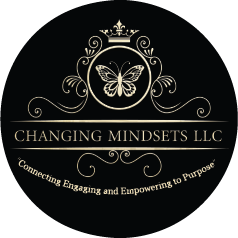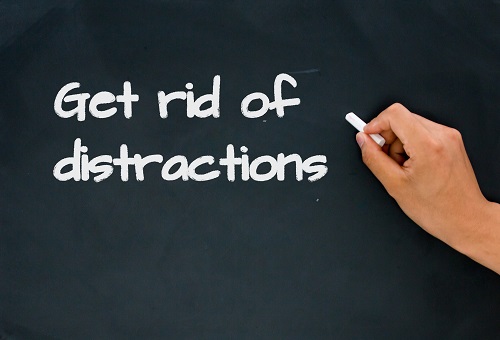Distraction is caused by: the lack of ability to pay attention; lack of interest in the object of attention; or the great intensity, novelty or attractiveness of something other than the object of attention. There are also internal distractions such as hunger, fatigue, illness, worrying, and daydreaming.
Improved Memory: Reducing distractions at work provides more opportunities for our memory to function properly. Our brain’s process for memorization involves transferring information from our short-term memory–like a sticky note, to our long-term memory–like a storage system.
Removing Distractions Is the Best Way to Focus and Be More Productive. I’ve done a lot of experimenting with minimalism recently. And one of the most exciting results has been a sharp increase in my productivity around work, especially the ability to focus and concentrate for longer stretches of time. With the changing times we have also seen the emergence of more and more avenues/sources of content creation and consumption. Can you imagine a world without Facebook/Instagram/WhatsApp’s/maps/blogs sites etc.? There is a plethora of avenues and an unimaginable quantum of data for us to consume. The information out there is no longer passive, it is constantly demanding our attention. In a world filled with so many distractions, how does one concentrate on the task at hand? The various social media channels, forums and apps ensure we are constantly tuned in to what is going on in the world. At any given time of the day, there we are, with one hand on the laptop keyboard, the other holding a cellphone, one eye on the work we are doing, the other simultaneously reading all the notifications popping up. Thus, this constant flow of information makes it hard for us to completely focus on the task at hand. In fact, even if there isn’t a notification, there’s always the expectation for one. In November 2016, in a post called The Binge Breaker, The Atlantic observed: “Messages, photos, and ‘likes’ appear on no set schedule, so we check for them compulsively, never sure when we’ll receive that dopamine-activating prize.” With our thoughts racing all over the place, we end up not being able to efficiently achieve what is most meaningful to us. More often than not, in a bid to respond to everything as it comes up, we end up forgetting a number of important things. Here is where attention management comes in. Attention management translates to taking the reins of our attention back in our hands, resisting distraction, deciding what we pay attention to and being present in the moment. In fact, it’s much more than avoiding distractions, it’s about being able to choose what deserves your time and attention.
How do we go about exercising attention management in our everyday lives?
- Be proactive instead of reactive:
A proactive approach involves actively creating opportunities throughout the day that help us focus on our priorities. Begin your task with a single-handed focus, understand your priorities, your goals, and accordingly learn to recognize when you are about to veer off from the task at hand. If you are reminded of anything minor while working, you could jot it down and come back to it later.
- Digital Declutter:
We continuously receive alerts from various sources, be it texts, news snippets or email. Of all these alerts, filtering only what is important can help us avoid getting distracted frequently. Turn off push notifications, badges and sounds that aren’t of importance, as often as possible and especially when working. This will help you minimize interruptions and focus on work for longer stretches.
- Prioritize:
Outline the tasks you wish to accomplish each day, in order of priority. This should help you decide what to focus on and concentrate single-mindedly on that one task without getting distracted. As Brian Tracy writes in his book ‘Eat That Frog’, the key to being productive and overcoming procrastination is to start your day with the biggest, most important and most dreaded task of the day, persist at it until it’s done, and do it well.
- Control your environment:
Ensure the environment around you aids you in being able to pay attention to what you choose, and not get swayed by external factors. Open a single tab when necessary, mute unnecessary notifications, use headphones and if that doesn’t work, you could try going to a more silent area in the office. Distractions will always be present, and keep increasing as the world around us advances. In such a scenario, learning to recognize what to avoid and what to focus on will go a long way in helping us be more productive, be present in the moment, and devote more time and attention to what’s really meaningful for us.
- Have a Plan the Night Before
Consider writing down two things that must get completed in order for that day to be productive. The reason there are two things is that perhaps the first task takes a shorter time than expected or it has a prerequisite, so it can’t be completed. The second task is there as a backup. Do these items first before checking emails, returning phone calls or reading social media feeds since those can easily hijack the start of any day.
- Turn Off the Distractions
Proactively checking for information may keep you from having it interrupt a concentrated workflow. You may want to turn off all notifications from smartphones and desktop applications. Consider checking email only four times per day and handling each inquiry only once. Controlling your devices, and not having that technology control you, may help reduce distractions and increase your focus.
- Get Comfortable
This means something different for every small-business owner. Comfort could be determined by the clothes, the chair, the music, the temperature of the room or the work location. Knowing what environment makes you comfortable yet focused at the same time can help you maintain focus through the work day.
- Practice Meditation
This may allow your mind to let go of interrupting thoughts and get centered on one thing. To start, consider sitting quietly in a place for three to five minutes a day. Close your eyes and count to 34. This may be difficult at the beginning since the mind tends to wander to other thoughts that could prevent you from getting to 34. Simply letting go of that thought without self-judgement and counting again can help get you back on track. Notice any feelings or sensations while doing this exercise. This is a harder task than it may seem, so take your time and try not to practice meditation for an hour at the beginning.
- Set Smaller Goals
“Big fat hairy goals” (BFHG) may be great for motivational speeches, but they don’t help anyone focus on getting important things done. Consider breaking down all goals to smaller pieces that can be accomplished more easily. As a result, this may only require focus for a shorter period of time, which may mean increased odds on completing the task.
- Sleep
Healthy adults need seven to nine hours each night. Many small-business owners cheat sleep to work longer hours in an effort to get more things done. What is worse, this “sleep debt” can build up over a long period of time. Sleep deprivation can actually be counterproductive to staying focused and completing tasks with the highest level of skill. Getting some rest may help you increase your focus and improve your overall health.
- Use Visual Reminders
Stuck on the top of my office computer monitor are three words: “Focus, Focus, Focus.” When I have difficulty sticking to a task or want to escape doing it to check email or Facebook, I look at this reminder and repeat those three words out loud. This cue really does help me!
- Give a Reward
Delaying gratification can actually help people focus on getting something done. To give it a try, choose the task and the customized reward (food, check social media, call a friend, etc.) before starting as a direct motivator.
- Walkabout
Standing up—or better yet, getting away from the office—can help increase your focus. Taking even a short walk away from work can help refresh the body and mind. Taking a break can help you refocus on the next task upon return.
- Unplug and Play
Non-work and screen activities can help free your brain up to focus later on a new task. For at least 30 minutes a day, consider working out, going for a run or bike ride, playing sports, doing puzzles or playing chess. Remember that a healthy body means a healthy mind. It can be difficult to focus when the body is sick or the mind is depressed.
What do you do to increase your focus? It is so important to stay present and work to limit the distractions in life that keep you bound to old ideas and habits. Understand what are the distractions in your life and work to develop healthy and positive ways of limiting them. Be prepared and be patient with yourself and others. As you are understanding yourself and paying attention, you may find that others may not be too excited or even supportive. Remember that it is your life and your path. No one else has to understand but you. Love yourself and be willing to be alone in some of your decisions. It is ok because some of the most important things in life will require you to do it alone!!! We came into the world alone and we will leave it the same way!!!
Yours In Your Journey to Personal Healing and Success!
Monica Olivia Squires, CARC I & II

